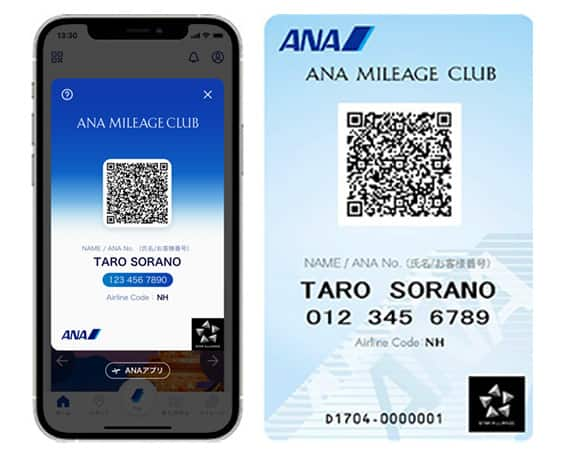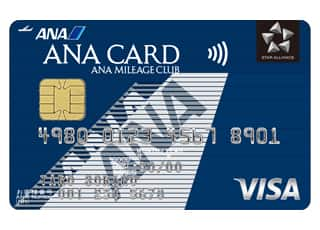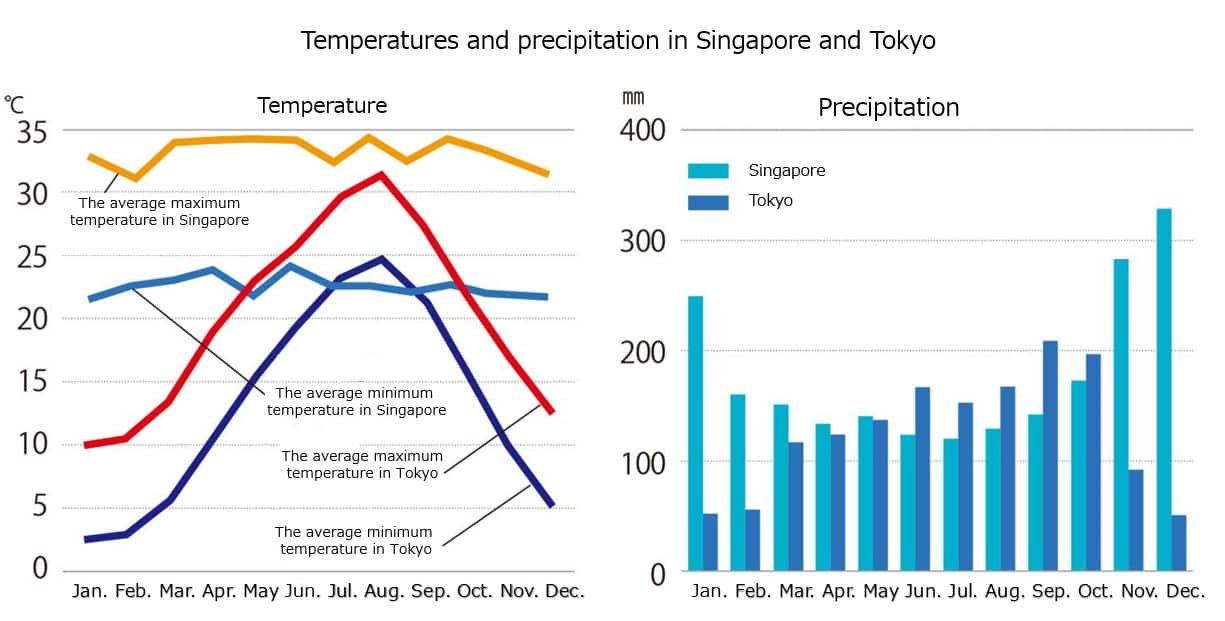- Please select the card you wish to join
-

Get your digital card immediately
No enrollment or annual fees
ANA Mileage Club Card
Earn more miles for your money
With credit function
ANA Card
-
Reservations
-
MILES
-
MILES
-
Login
-
Support
Singapore
on June 18th, 2025 (JST) current information
Immigration and Visa
Visa
None required for Japanese citizens for stays of up to 30 days. You also generally need to have a ticket for leaving Singapore (can be an open ticket).
Passport
Your passport must be valid for at least six months beyond the duration of your stay.
- Visa, passport, and other information is subject to change without notice. Be sure to check with the Embassy, Consulate, or travel agency.
Quarantine
When visiting from Japan, it is prohibited to bring the following items into Singapore. (Not limited to the following.)
- a. Chewing gum (however, you are allowed to bring in gum for oral care or medical use that has been approved by the Health Sciences Authority of Singapore)
- b. Rhinoceros horns (processed, unprocessed, whole, or in part)
- c. Products derived from endangered wild animals or similarly threatened animals
- d. Pistol or revolver type lighters. Firecrackers.
- Violators will be fined a maximum of 10,000 dollars or prosecuted, depending on the severity of the violation.
Customs
Bringing in e-cigarettes
E-cigarettes are prohibited for sale and import in Singapore and you can be fined for possession, so do not bring it into the country.
Bringing in tobacco
It is prohibited to bring in tobacco that does not meet all the conditions below. *Tobacco products sold in Japan do not meet these requirements and are therefore prohibited from bringing in.
Tobacco that is exempt from the prohibition on bringing in.
- No logo or brand symbol on the package.
- Has a design or photo depicting a health hazard warning.
- The color of the package is drab dark brown.
For bringing and possession of tax-free cigarettes
A 9% Goods and Services Tax (GST) is levied on unopened/unused souvenirs, gifts, foods, and other products brought into Singapore for personal use, but travelers are exempt from this tax if the total does not exceed S$500 (S$100 when staying for less than 48 hours).
The amount of liquor that an adult can bring in depends on the alcohol content. A combination of the following 5 patterns is exempt from taxes: up to 1L of spirits and 1L of wine, 1L of spirits and 1L of beer, 1L of wine and 1 L of beer, 2L of wine, 2L of beer.
Only up to 400 g of tobacco can be brought into Singapore even if it meets the above requirements for bringing in tobacco. Even a single cigarette must be declared; 1g per 1 cigarette is taxed S¢49.1.
Singapore Customs(http://www.customs.gov.sg/)
When entering or leaving Singapore, if you are carrying the physical currency or bearer negotiable instruments (CBNI) exceeding S$20,000 or foreign currency equivalent, you are required to declare it. For more information,
please check the ICA website.
Time difference and Daylight Saving Time
Time difference
Singapore is 1 hour behind Japan. When it is 12:00 in Japan, it is 11:00 in Singapore. Daylight saving time is not observed.
Climate
Climate
Singapore has a tropical monsoon climate, so it has high temperature and high humidity throughout the year. There is a rainy season and dry season. During the rainy season from November to February, it often rains and the temperature drops.
On the other hand, during the dry season from March to October, there is little rain and the air is dry. The sunshine is particularly strong from June to August. However, even in the dry season, there are frequent squalls that last for 1 to 2 hours and suddenly stop. Therefore, carrying raingear is recommended.

Temperatures and precipitation in Singapore and Tokyo
-
Monthly average temperature and precipitation
The average maximum temperature in Tokyo and Singapore, The average minimum temperature in Tokyo and Singapore
month The average maximum temperature in Tokyo The average minimum temperature in Tokyo The average maximum temperature in Singapore The average minimum temperature in Singapore Jan. 10℃ 3℃ 33℃ 22℃ Feb. 10℃ 3℃ 32℃ 23℃ Mar. 13℃ 5℃ 34℃ 23℃ Apr. 18℃ 10℃ 34℃ 24℃ May 23℃ 15℃ 34℃ 22℃ Jun. 25℃ 19℃ 34℃ 24℃ Jul. 30℃ 23℃ 33℃ 23℃ Aug. 32℃ 25℃ 34℃ 23℃ Sep. 27℃ 22℃ 33℃ 22℃ Oct. 22℃ 15℃ 33℃ 22℃ Nov. 17℃ 10℃ 32℃ 22℃ Dec. 13℃ 5℃ 31℃ 22℃ The average precipitation in Tokyo and Singapore
month The average precipitation in Tokyo The average precipitation in Singapore Jan. 50mm 250mm Feb. 50mm 160mm Mar. 120mm 150mm Apr. 130mm 130mm May 140mm 140mm Jun. 170mm 120mm Jul. 150mm 120mm Aug. 170mm 130mm Sep. 210mm 140mm Oct. 200mm 180mm Nov. 90mm 290mm Dec. 50mm 330mm
Currency and Exchange Rate, Tax, Currency exchange, Tip
Currency and Exchange Rate

Singapore banknotes and coins
The unit of currency is the Singapore dollar (S$), which is subdivided into the Singapore cent (S¢). S$1 is approx. JPY113.96 (as of June 18, 2025). There are seven denominations of banknotes: S$2, S$5, S$10, S$50, S$100, S$1000, and S$10000. (S$1000 and S$10000 bills are no longer being issued but those that are already in circulation can be used.) There are six types of coins: S¢1, S¢5, S¢10, S¢20, S¢50, and S¢1 (the S¢1 coin is not really circulated). Also, in 2013 five new types of coins were issued.
Tax
Normally, products are subject to a 9% consumption tax (GST), and a service charge of 10% is added to hotel fees and restaurant charges. Some local eateries do not add a service charge and consumption tax. They are not added at hawkers. When travelers (excluding residents) take purchased goods outside of Singapore, the paid GST can be refunded if specific conditions are met, minus a percentage taken by the company that processes the refund (refunds are not possible for meal and hotel charges).
Tip
Basically, Singapore does not have a custom of tipping.
- Restaurants: If a service charge is added, there is no need to leave a tip, but if good service is received, you can tip S$2.
- Hotels: A tip (from S$2) is given to bellhops and maids for services.
- Taxis: Not necessary.
Voltage and plug
Voltage
Voltage is 230V at a cycle of 50Hz. Generally, plugs are the square, 3-prong type (BF), but some are the round 3-prong type (B3). Using electric products from Japan requires transformers, but most hotels lend them to guests, so this service can be taken advantage of.
Video and DVD
Video and DVD
Singapore uses the PAL TV and video system, which is different from Japan (NTSC), so normal video players used in Japan cannot play DVD and other media from Singapore. The DVD region code for Singapore is 3, while it is 2 for Japan. Normal DVD players in Japan cannot play DVDs from Singapore.
Blu-ray system
The Blu-ray region code is A, same as Japan, so Blu-ray discs purchased in Singapore can be played on Japanese media players. Please keep in mind that there may be no Japanese subtitles.
Postal Fees
Airmail to Japan costs S$0.85 for a postcard or S$0.8 for aerogram, while a sealed letter up to 20g costs S$1.55, with an extra S$0.35 added for each 10g thereafter (Takes 4 to 9 days). Sending parcels by air mail is S$63 up to 2 kg.
Phone Call
How to phone
Telephoning Japan from Singapore
Telephoning Japan from Singapore
Dial 001 (International telephone identification number)
81 (Country Code, Japan)
X X(Remove the first 0 for area codes)
- Remove first 0 from mobile telephone numbers starting with 090 or 080
1234-5678 (Other parties telephone no.)
Telephoning Singapore from Japan
Telephoning Singapore from Japan
Phone carrier identification number
- 0033 (NTT Communications)
- 0061 (SoftBank)
010 (International Identification No.)
For the three cell phone carriers, hold down 0 until + appears, then add the country code and the phone number your wish to dial.
Pre-registration to World Call is required for NTT DoCoMo.
65 (Country Code, Singapore)
6123-4567 (Other parties telephone No.)
Holiday / National holiday
Holiday / National holiday
Below are national holidays in 2026.
2026
- January 1 to 3: New Year's
- February 17 to 18: Chinese New Year (lunar calendar New Year)*1
- March 21: Hari Raya Puasa*1
- April 3: Good Friday*1
- May 1: Labor Day
- May 27: Hari Raya Haji*1
- May 31: Vesak Day*1
- June 1: Substitute holiday*1
- August 9: National Day (National Foundation Day)
- October 20: Deepavali*1
- December 25: Christmas
- *1.National holidays fall on different days, depending on the year.
Language
Language
The official languages are Malay, English, Chinese (Mandarin Chinese), and Tamil.
Business hours, etc
Business hours
Below are guidelines for general business hours, which differ by shop, department store, restaurant, etc.
Banks
Although hours vary by bank, most are open from 9:30 to 16:30 on weekdays and to 14:30 on Saturdays. They are closed on Sundays and public holidays. Most ATMs are available 24 hours a day, 365 days a year.
Shops
11:00 to 21:00. Many department stores and large shopping centers open from 10:00. Seven-Eleven and Cheers convenience stores are found throughout towns and are often open 24 hours.
Restaurants
10:00 to 22:00. Some restaurants serve breakfast, and some close between lunch and dinner. Some food courts stay open until late at night.
Age Limit
Tobacco and alcohol is restricted to persons 18 years old and older. Entrance to persons under 18 years of age is prohibited for movies rated R (A). In the case of a NC-16 rating, persons under 16 years old are prohibited from entering. Identification, etc. must be shown. Persons under 21 are prohibited from entering casinos.
Manners
Regulations
Various regulations and laws have been established to unify this small island country where many races live together. Fines to thoroughly enforce them have also been established. Even travelers are subject to fines, so care must be taken.
The primary example of a fine is a maximum of S$1000 imposed for littering. There are also fines for smoking outside of designated smoking areas, and spitting/hawking phlegm in public areas. There is a fine for eating/drinking in the MRT (trains). From 2022, you are legally required to clean away your food containers and trash after eating in a hawker center, food court, or kopitiam (facilities full of hawkers). A first offense will receive a warning, but a second offense brings a fine of S$300. Bringing chewing gum into Singapore is prohibited. Also, crackdowns on drugs are extremely harsh. For instance, even foreigners who bring in an excess of specific amount of drugs will not get off with just a fine. Capital punishment is imposed.
Bringing in tobacco
Tobacco Control Laws in Singapore prohibit bringing in tobacco unless it meets all of the following requirements. *Tobacco products sold in Japan do not meet these requirements and are therefore prohibited from bringing in.
- No logo or brand symbol on the package.
- Has a design or photo depicting a health hazard warning.
- The color of the package is drab dark brown.
- Only up to 400 g can be brought into Singapore even if it meets the above requirements. Even a single cigarette is taxed (S¢49.1 per gram per unit) and must be declared.
Taboos
Since there was a three-year period when the Imperial Japanese Army occupied Singapore during WWII (Shonan Island era), some elderly Singaporeans harbor anti‐Japanese sentiments. There are no particular religious taboos, but avoid wearing clothing that exposes the skin when visiting Islamic temples.
Drinking
Laws concerning alcohol consumption
It is illegal to sell alcohol between 10:30 p.m. and 7:00 a.m.
Smoking
Both indoor and outdoor eating/drinking facilities are non-smoking, excluding some designated smoking areas. Even nightspots are non-smoking, but there are some establishments with smoking areas (restricted to those authorized by the National Environment Agency). Areas where smoking is allowed are required by regulation to clearly mark the place with a symbol (floor markings, table colors, etc.) or sign.


